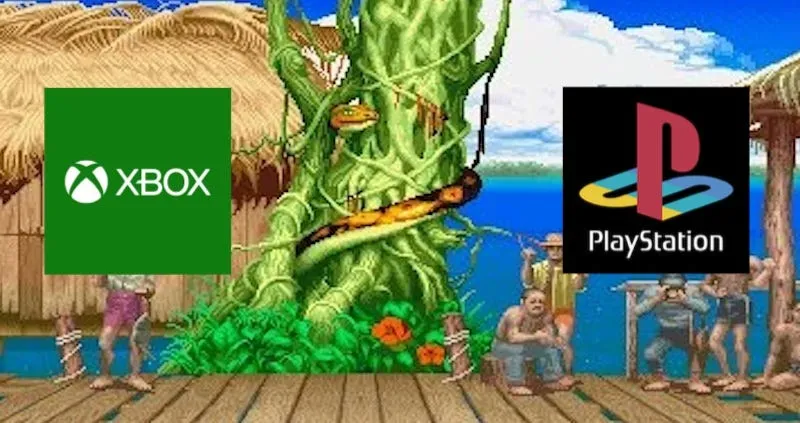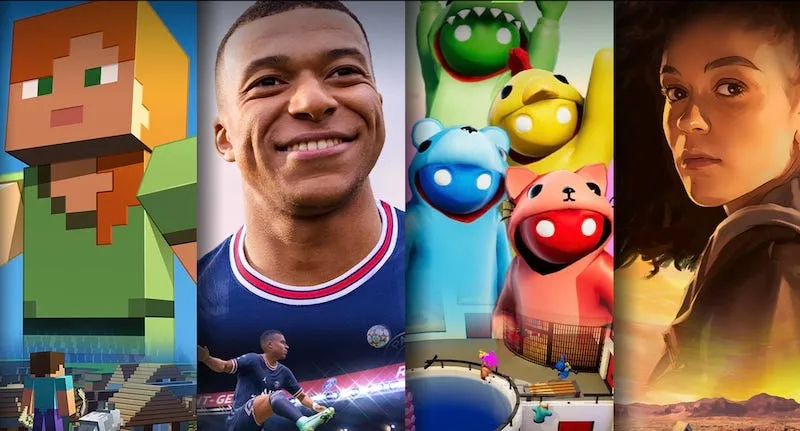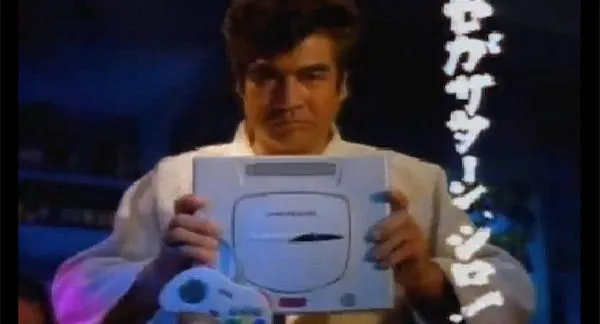
[ad_1]
[The GameDiscoverCo game discovery newsletter is written by ‘how people find your game’ expert & company founder Simon Carless, and is a regular look at how people discover and buy video games in the 2020s.]
Happy new week, crew! We’re again with a particular new GameDiscoverCo e-newsletter wanting into one in every of our favourite issues – boring, boring authorized paperwork. Except this time, they’re manner much less boring than regular. Huzzah!
Otherwise, we’re actually into *flex* sports activities, so we spent the weekend watching the Financial Modeling World Cup, after all. It’s, uhh, Excel as eSports, and Ars Technica simply did a enjoyable write-up of it (with embedded movies). Anyhow, onwards..
The rumble in Brazil: Sony, MS conflict on biz fashions!

So, you could have seen tales about dueling filings in Brazil between Microsoft & Sony. This pertains to Microsoft’s meant acquisition of Activision Blizzard for $68.7 billion – and in Brazil, CADE is the gov company set as much as “ensure free competition”.
What’s fascinating about CADE’s course of is that – not like the U.S. Federal Trade Commission, whose antitrust investigations with affected events occur behind closed doorways and confidentially – statements & replies are all public.
Thus, you get a public webpage exhibiting the statements of all the firms weighing in on the deal – together with Ubisoft, Apple, Riot, Google, Bandai Namco, Sony and extra – in addition to Microsoft’s replies to their statements. It’s been Microsoft’s reply – posted on August tenth – which has brought about loads of the kerfuffle.
There’s been loads of approximate and incomplete translation of the contents, so GameDiscoverCo reached out to Dodgeball Academia PT-BR translator Tiago Rech, and received him to translate all the pertinent bits of Microsoft’s reply.
We’re making the doc – which incorporates translated textual content in blue – accessible for all events to peruse. There’s far an excessive amount of detailed argument to function right here. But big-picture, right here’s among the headlines:
- Microsoft ‘admits’ it misplaced the last-gen console battle: as a part of its arguments, the doc particularly says: “Sony has surpassed Microsoft in console sales and user base, [the PS4] having sold more than double the hardware units of Xbox [One] in the last generation.” This was largely understood to be the case, however fascinating to have affirmation.
- Game Pass partially exists as a response to that head-to-head battle: the legal professionals say: “the Xbox Game Pass… was launched as a competitive response by Microsoft due to Xbox’s lack of success in the ‘console war’” Bear in thoughts this can be a authorized submitting attempting to make MS appear like ‘the little guy’. But there’s parts of reality on this.
- Microsoft says Sony is an enormous outlier in its worries: Sony’s submitting stated that Call Of Duty “would have no rivals and would be essential to their PlayStation console”, and “the inclusion of Activision Blizzard in the Xbox Game Pass catalog would present a ‘inflection point’ in the market”. But Microsoft says that is: “entirely isolated in relation to the public responses of the other third parties”, in addition to counterfactual.
- It’s claimed that Xbox is being a ‘fair’ disruptor to a market chief: “Sony does not want attractive subscription services to threaten their dominance of the digital distribution of console games. In other words, Sony rebels against the introduction of new monetization models capable of challenging their business model.”
So far, so apparent. Much of the questioning of the Activision Blizzard acquisition appears to focus on how essential the Call Of Duty franchise is. It’s clearly essential to the PlayStation, and Sony is fearful a few rival getting its arms on it.
It’s price noting that Microsoft once more goes on the report re: Call Of Duty as saying “it is not part of Microsoft’s strategy to remove content from players”. And it additionally provides: “it is improbable that a significant number of PlayStation and Nintendo users would migrate to Xbox as a result of a hypothetical exclusivity strategy regarding Activision Blizzard games.”
(BTW, there’s numerous juicy market-share info within the doc that’s – sadly – redacted, though common tendencies are hinted at. I think the ‘Xbox selling half’ remark was one which snuck by the legal professionals’ pink pens, truly.)
Who advantages from Game Pass’ aggressive sub technique?

While it’s straightforward to get caught in authorized trivia, there’s an even bigger battle right here – the one for subscription companies turning into the traditional within the console (and even PC?) recreation biz over time. That combat exists individually of whether or not Xbox buys ActiBlizz or not.
But one a part of the doc stood out to me. Sony claimed that “the lower immediate costs of subscription services to consumers may cause publishers who recoup significant investments in games by selling them for an upfront fee to become uncompetitive.”
Microsoft’s response? “Such a subjective critique of the Game Pass business model also reveals Sony’s real concern: the fear that an innovative business model that gives consumers access to high quality content and lower immediate costs – something that should be praised rather than criticized – threatens its leading position in the gaming industry.” Hot tamale!
Well – I believe there could also be loads of recreation publishers studying this article who’re hurting proper now on ROI, and may query Xbox on whether or not the transfer to ‘lower immediate costs’ from a participant perspective ought to at all times be praised. (I’ve written on the present provide/demand points largely not being Game Pass-impelled, although.)
But wait, Microsoft went additional, and determined to inform Sony methods to conduct its enterprise: “Sony could further increase the high quality of its first-party games by making them available on PlayStation Plus on launch day, a strategy that (i) could rapidly accelerate the growth of the service’s user base in response to competitive pressure of Game Pass (or any other service) and (ii) that Sony does not currently adopt, even with respect to the new and updated PlayStation Plus. Such a move on Sony’s part could make PlayStation Plus even more attractive, rivaling any strategies of competitor game distributors – to the benefit of players.”
Just to remind everybody, that $68.7 billion that Microsoft is spending to choose up Activision Blizzard – that’s all cash they generated from Game Pass, proper? Oh… it’s windfall income from the market dominance of Windows, Office and the rise of Azure that provides Xbox the monetary backing to make this deal, you say?
There’s some apparent ‘level playing field’ points right here. These are a level separated from whether or not the precise transaction is anticompetitive, although. But it’s fairly clear to me that Sony couldn’t transfer its first-party video games to Day 1 on PS+ and retain ‘acceptable’ company income within the quick or medium-term. Which will get us to…
Conclusion: personas, motivations, & firms

This is an extremely complicated topic. And I’ve to confess I’m a lot amused by the messaging dissonance between the borderline evangelical public personas of Xbox’s Phil Spencer & Sarah Bond and these sharp lawyering phrases. (“Pay no attention to the box of spiders under the desk”, as they are saying.)
So when Sony says – “we really think people should be paying upfront for new games”, are they a) valiantly defending the ‘direct’ market (from the transfer to F2P/IAP ‘everything’, or third social gathering bundlers), or b) attempting to take care of the profitability of their earlier, staid and barely backward {hardware} biz mannequin, whereas constructing the aircraft in mid-air to craft their very own multiplatform GaaS hits?
And when Microsoft says “we want to unite the world of players with Game Pass” – are they a) making a genuinely nice new platform which is providing indies and AAAs legit wonderful attain & monetization, or b) pivoting from a previous-gen failure, contributing to standalone recreation pricing pressures, and partially usurping the direct participant/dev relationship too?
It’s a bit of from column A, and a bit of from column B, dawg. There’s no clear reply. But look – firms wish to swallow the world. Maybe I’m delicate to this as a result of I spent a very long time serving to to run GDC, the place the problem of company vs. group motivations have been writ giant – and I used to be ‘stuck in the middle with you’.
But sure, I do assume the ‘big getting bigger’ isn’t at all times an ideal dynamic. And if authorities regulation can’t remedy for that – which frankly, it might not – we now have to belief the platform middlemen to do the proper factor for themselves, the gamers & the publishers and builders – all on the similar time. Easy, proper?
[We’re GameDiscoverCo, an agency based around one simple issue: how do players find, buy and enjoy your premium PC or console game? We run the newsletter you’re reading, and provide consulting services for publishers, funds, and other smart game industry folks.]
[ad_2]